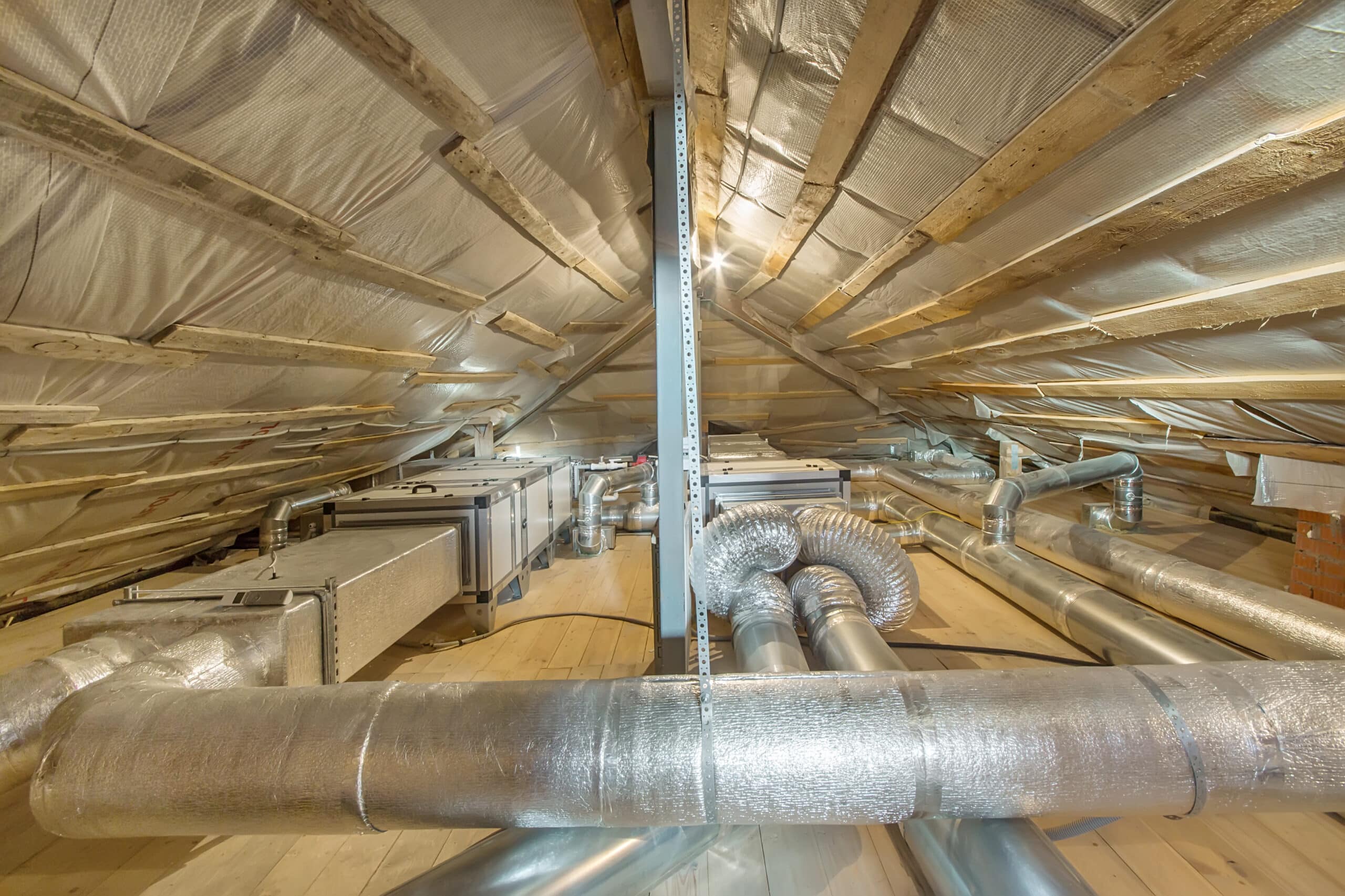Cold weather can take a toll on your residential pipes. The chilly temperatures can freeze the pipes and cause them to burst, damaging your home’s structure and the piping system. However, insulation piping can protect your home’s pipes and prevent them from freezing, bursting, and more.
That’s why Attic Projects put together a guide to teach homeowners how to insulate their attic pipes so they remain pristine no matter the outside temperature.
Attic Projects is the number one choice for piping insulation and associated services. Our team has extensive experience with residential, commercial, and industrial piping insulation, qualifying us for all your insulation piping needs. If you want to protect your home’s piping system this winter, contact Attic Projects for premier insulation piping at a fair and affordable price.
The Need to Prevent Pipes from Freezing in the Attic
Frozen pipes can devastate even the best-built residences. When a pipe freezes, water inside it becomes solid and expands, creating immense pressure within the pipe. The excess pressure eventually causes the pipe to burst, resulting in extensive structural damage and an inadequate piping system.
Exposed pipes in attics, crawl spaces, and garages are the most vulnerable to freezing, making it essential to protect them once the temperatures drop.
Wrapping your pipes in high-quality piping insulation materials will keep them warm during the cold winter months, preserving the pipes’ integrity, longevity, efficiency, and more.
Types of Pipes in the Attic
Most attics consist of two primary pipes:
- Vent pipes for the plumbing system
- Propane or natural gas pipes
Although the gas pipes won’t freeze during the winter, the plumbing system’s pipes are prone to bursting in exceedingly low temperatures.
Fortunately, Attic Projects have numerous types of piping insulation that will protect nearly any pipe from freezing. Our piping insulation types include, but are not limited to:
- HVAC piping insulation
- Industrial piping insulation
- Residential piping insulation
- Commercial piping insulation
Our team will assess your pipes and determine the piping insulation specification for your home, ensuring your residence receives the best insulation for its unique needs.
Methods to Prevent Freezing in Water Pipes in the Attic
Although insulation piping is the best way to prevent pipes from freezing, there are other methods that will safeguard them from cold temperatures. Below are some efficient ways to prevent your pipes from freezing and bursting.
Let the Faucets Drip
Dripping faucets relieve pressure within your home’s piping system, significantly reducing the chances of a burst or fissure. Moving water is less likely to freeze and won’t expand within the pipes if you allow the faucets to drip.
Slightly turn your sink’s hot and cold valves until the faucet starts dripping. Also, choose the faucet farthest away from your residence’s water supply. The extended distance keeps the water moving for longer, decreasing the likelihood of freezing.
Drain and Cover the Outside Spigots
Outside spigots are extremely prone to freezing temperatures, especially if they aren’t frost-proof. To prevent your home’s exterior fixtures from freezing, wrap and cover them with a warm piping insulation material and disconnect the hoses.
If your spigots aren’t frost-proof, drain them, close their shut-off valves, and install a faucet insulator to prevent potential cracks, fissures, and bursts.
Wrap the Outside Pipes with Foam
Like exterior spigots, outdoor pipes have a higher chance of freezing and bursting in cold temperatures. However, if you don’t have pipe insulation, wrapping your outdoor pipes (and pipes in unheated indoor regions) with foam coverings will reduce the chances of damage and bursting. You can also use thick towels and t-shirts to preserve your pipes, but foam coverings and pipe insulation work best.
Open Your Kitchen and Bathroom Cabinets
Many residential piping systems run through bathroom and kitchen cabinets. Opening the cabinets exposes the pipes to heated air, keeping them warm during winter.
Methods to Prevent Freezing in Other Pipes in the Attic
Wrap the Pipes and Water Lines
Again, wrapping your water lines and pipes with suitable insulation, thick towels, or t-shirts is a surefire way to protect inside and outside piping systems. Always cover your attic pipes before winter arrives to prevent bursting and freezing during cold temperatures.
Insulate the Attic
Attic insulation prevents cold air from penetrating your home and freezing your pipes. If you don’t have a well-insulated attic, adding more insulation will give your residential piping system an extra layer of protection against freezing temperatures, ensuring they remain efficient and damage-free throughout the winter.
Air Seal the Attic
Like insulation, air sealing allows your attic to retain more heat while keeping cold air away from your pipes. Use a high-quality air sealer to fill holes and leaks within your attic’s windows and walls to keep the space warm during the chilly winter season.
Keep the Heater On
Heaters keep your home warm and cozy during the winter while preventing freezing temperatures from damaging the piping system. Turning on your heater and allowing it to run throughout the day will safeguard your home’s pipes and keep you comfortable during the coldest winter nights.
However, don’t turn the heater on too high if you don’t want to increase your electricity bill drastically. A moderately warm climate will prevent freezing and bursting just as well as a hot indoor temperature.
Shut Off the Main Water Supply
Shutting off your home’s main water supply will prevent water from freezing within your pipes. However, you can’t access running water if you turn off the main water supply. It’s best to save this method for severe weather conditions.
Contact Attic Project for High-Quality Insulation Piping
If you need first-class insulation piping for your home, contact Attic Projects. Our team will equip your home with the finest pipe insulation, protecting it from even the coldest winter temperatures. We have over a decade of industry experience and can handle all your insulation piping needs without exceeding your budget.
Give us a call to receive a free quote today!




